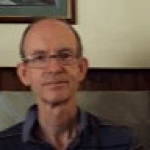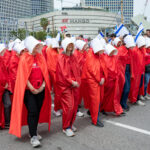Summary: The new presidents of the Philippines and the United States are two of a kind, and part of a global reactionary trend — Editors
There are many similarities between Rodrigo Duterte, President of the Philippines, and Donald Trump. Both won presidential elections in 2016. They are of similar age, Duterte born in 1945, Trump in 1946. Both presented themselves as champions of the people against the elite and as strong men ready to take drastic measures to fix the country’s problems. These two alpha males are alike in their strutting macho posturing and frequent use of insulting language. Trump has bragged about sexually harassing women, Duterte made an appalling joke about a woman who was raped and murdered. Both have questioned their countries’ longstanding alliances and suggested a radical realignment, though it remains to be seen how far they will follow through on this.
A comparison of these two, taking account of differences as well as similarities, may help us towards an understanding of the present moment in world politics.
The resemblances between the elected leaders are all the more remarkable because their countries are so different. The United States remains the most powerful state on earth, although that power is increasingly offset by the rise of other great powers, of which China is leader of the pack. The Philippines is very much on the periphery of the world system. In an index of GDP per head in purchasing power parity, where the USA = 100, the Philippines = 12.3. (Mexico, for comparison, = 30.9). The Philippines is a country of mass emigration. If it shared a land border with the U.S., Trump would want to build a wall (and make the Philippines pay for it).
Though part of Asia, the Philippines resembles a Latin American country in many ways. The islands were brought together under Spanish rule from 1571 to 1898. The country then became a colony of the U.S., becoming an independent state in 1946.
Although the constitutions are similar (the constitution of the Philippines was adapted from that of the U.S.) the political systems are quite different in practice. In the U.S., the Democratic and Republican Parties (though both bourgeois parties) represent genuinely different social constituencies, beliefs and attitudes. Parties in the Philippines are mostly networks of power and patronage, grouped around wealthy, usually landowning, families. They are more dynastic than ideological.
As is well known, Trump came to power as an outsider, famous as a super-rich and flamboyant property developer and later as a television personality.
Duterte wears ordinary casual clothes and speaks like a ruffian, but he is the son of a provincial governor with a long career as a lawyer and politician behind him. Longstanding mayor of Davao on the southern island of Mindanao, he comes from a provincial elite. His daughter, Sara Duterte, is the current mayor. Even so, he could campaign as an outsider as opposed to the Manila-based elite that has long dominated Philippine politics. Mindanao with the Sulu archipelago is the most unstable part of the Philippines, the scene of Maoist and Islamic insurrections.
As mayor of Davao, Duterte unleashed extrajudicial killings (that is, murder) of suspected drug dealers and other criminals, a policy that he has now rolled out to the whole country, with deadly effect. Thousands have been killed by police and vigilantes, their bodies bound in tape and dumped in the street. This is law and order transformed into opposite – state-driven lawlessness.
The constitution of the Philippines declares that “no person shall be deprived of life, liberty or property without due process of law”. At his inauguration, Duterte said “My adherence to due process and the rule of law is uncompromising”. This was a lie not even intended to deceive his listeners, but purely for the sake of constitutional form.
In riding roughshod over legality and human rights, Duterte has gone much further than Trump, who faces stronger judicial and political constraints. Still, both are facing in the same direction. Trump has expressed himself in favour of waterboarding and killing families of suspected terrorists.
In foreign policy, Duterte and Trump have both distanced themselves from traditional alliances and are tentatively sounding out new ones. Duterte’s anti-U.S. rhetoric is partly due to vexation at the Obama administration for criticism of his violation of human rights. But there is also geopolitical sense in a turn towards China, the rising superpower in the region. The Philippines has reached a working compromise with China over the South China Sea, at least for now. In effect, the countries have agreed to differ over China’s claim to sovereignty, while China allows the Philippines to fish in those waters.
Trump cold-shoulders European governments, openly supports the nationalist Right as represented by Nigel Farage (of the United Kingdom Independence Party, Ukip), is confrontational towards China, and declares his admiration for Vladimir Putin (whose cyber-spies apparently meddled in the U.S. election to help him to power).
There are some significant differences. With regard to the Philippines’ Muslim minority, the Moros, who have resisted in turn rule by the Spanish, the Americans and the Philippine state, Duterte is seeking a peace settlement with the Moro Islamic Liberation Front and the Moro National Liberation Front (currently there is a ceasefire in the long guerrilla war). He has vowed to wipe out Abu Sayyaf, a force aligned with ISIS/Daesh.
Duterte also agreed to a ceasefire (though this has recently broken down) with the New People’s Army (NPA), the armed wing of the Communist Party of the Philippines (CPP), whose guerrilla insurgency lasted 47 years. This deal involved an amnesty and release of political prisoners. To turn away from an ineffectual guerrilla campaign was a rational move; what is shocking is that the National Democratic Front (which includes both the CPP and the NPA) has entered Duterte’s government by nominating three members of his cabinet. Duterte himself has claimed to be a president of the Left. This did not stop him from having the former dictator Ferdinand Marcos reburied in the Cemetery of Heroes.
While Trump is an enormously divisive figure whose election and inauguration have been met with huge protests in the United States, Duterte is broadly popular in the Philippines for now, and the protests against him, though similar in character to those in the U.S., have been much more limited in scale.
Duterte and Trump are both specimens of a type of elected “strongman” leader, that also includes Recep Tayyip Erdogan of Turkey, Narendra Modi of India and Viktor Orban of Hungary. Vladimir Putin, who has held power in Russia since 1999, is the prototype.
There is an analogy with the rise of fascism in the 1930s. We would not expect a twenty-first century analogue of fascism to be an exact replica of the original, or to call itself by that name. Duterte’s death squads, Trump’s threats (later withdrawn) to jail Hillary Clinton and his hint that she might be assassinated if she won, the beating of protesters at his rallies, his group libel against Muslims and Mexicans all transgress the norms of democratic politics and conventional decency and carry an odour of fascism.
The struggle for a new human society continues, and has even received new impetus, spurred on by the threat from the Right. However, it continues under new and unfamiliar conditions. The world is rapidly changing, and theory must struggle to catch up.






0 Comments